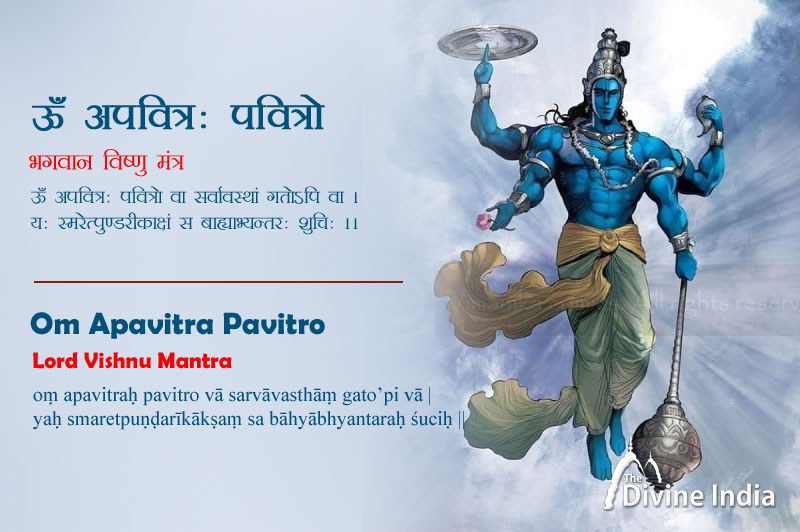


oṃ apavitraḥ pavitro vā sarvāvasthāṃ gato’pi vā |
yaḥ smaretpuṇḍarīkākṣaṃ sa bāhyābhyantaraḥ śuciḥ ||
Meaning: Whether someone is impure or pure, has gone through various conditions, or is in any state, whoever meditates upon the lotus-eyed Lord Vishnu becomes pure both externally and internally.
Translate Sanskrit to English
Om - A sacred and universal sound.
Apavitrah - Impure.
Pavitro - Pure.
Va - Or.
Sarvaavastham - All conditions or situations.
atopi - Having passed through.
Yah - Whoever.
Smaret - Remembers or meditates.
Pundarikaksham)- The lotus-eyed one, referring to Lord Vishnu.
Sa - That person.
Baahyaabhyantarah - Both externally and internally.
Shuchih - Pure or clean.
This verse emphasizes that the remembrance of the divine, symbolized here by the lotus-eyed Lord Vishnu (or Pundarikaksha), has the power to purify an individual, both internally and externally, regardless of their current state of purity or impurity. It underscores the importance of spiritual purification through devotion and remembrance of the divine.
Description
This verse is present in Chapter 9, Verse 30 of "Bhagavad Gita" and it promotes the importance of religious purity and mental purity. This means that purity is not only external, but it is also spiritual and mental.
Here, the person who remembers Pundarikaksha (Vishnu) maintains internal purity as well as external purity. This verse shows the importance of purifying one's life and mentally through religious practice and spiritual success.
Furthermore, it also states that divinity and purity have an important part in Hinduism, and remembering God with devotion can make one's life pure and spiritual.